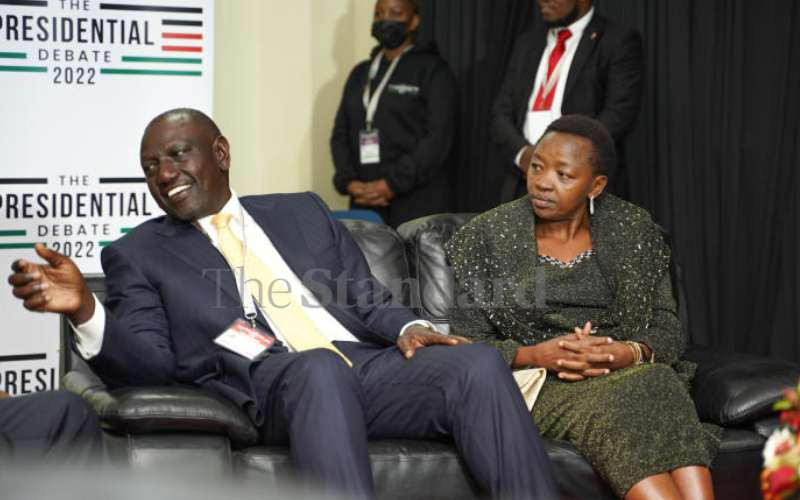×
The Standard e-Paper
Smart Minds Choose Us

Deputy President William Ruto had the limelight to himself following Azimio flag bearer Raila Odinga's decision to snub a joint presidential debate hosted by media stations.
And for one and a half hours, Ruto would answer questions on his plan for the economy, his integrity, shifting positions, and the unfulfilled promises of the Jubilee administration.